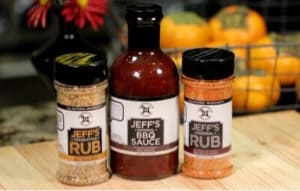Darn guys. We had some friends over this weekend and I was so excited to serve up some butt. They enjoyed it but it was not my best. It was drier than normal and tough around the edges. The one end was pretty burned (money muscle?). It was as hard as a brick.
A couple of things come to mind. My Mav probe was trailing 10F behind my MES BT probe. This was weird. They were neck in neck at the beginning of the stall, but near the end I checked and their was a 10F diffs. Thats a lot. I decided that the BT probe was probably in a fat pocket, or in a thinner part of the meat? But maybe I overcooked it by trusting the Mav probe? Is my Mav probe failing? What could cause this? Could overcooking a butt by 10F do this?
I was also running behind. I had to bump up the temps from 225F to 250F in the last 3 hours. I dont think that made a diffs but I wanted to mention it. Total smoke for a 5.5lb butt took 13 hours, which seems WAAAAAAAAAYY too long lol.
It also tasted like a salt lick. Live and learn, but I dry brined it for 36 hours. I was overly generous with the kosher salt. I now know what the limit is. It was too much. I also used McCormicks pork rub and I forgot to check what their salt content is. I could have doubled up. Would salt make the meat drier?
Anyway, another butt incoming this weekend. My ego took a hit and I need to fix it!
A couple of things come to mind. My Mav probe was trailing 10F behind my MES BT probe. This was weird. They were neck in neck at the beginning of the stall, but near the end I checked and their was a 10F diffs. Thats a lot. I decided that the BT probe was probably in a fat pocket, or in a thinner part of the meat? But maybe I overcooked it by trusting the Mav probe? Is my Mav probe failing? What could cause this? Could overcooking a butt by 10F do this?
I was also running behind. I had to bump up the temps from 225F to 250F in the last 3 hours. I dont think that made a diffs but I wanted to mention it. Total smoke for a 5.5lb butt took 13 hours, which seems WAAAAAAAAAYY too long lol.
It also tasted like a salt lick. Live and learn, but I dry brined it for 36 hours. I was overly generous with the kosher salt. I now know what the limit is. It was too much. I also used McCormicks pork rub and I forgot to check what their salt content is. I could have doubled up. Would salt make the meat drier?
Anyway, another butt incoming this weekend. My ego took a hit and I need to fix it!







